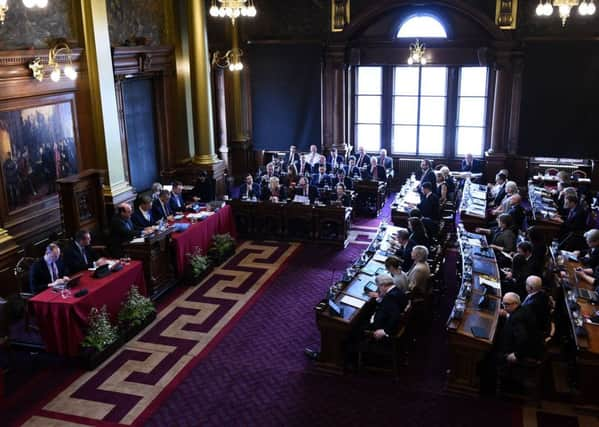Steve Cardownie: This is how democracy works


Before the council sets its budget every February for the following year, it embarks upon an extensive public consultation programme which starts in the autumn. The proposed budget will already have been the subject of intense discussion and scrutiny by both of the parties that make up the coalition with the SNP and Labour trying to progress some of the promises that they both made in their respective local manifestos. First of all, both Groups meet independently to prioritise their spending plans after considering recommendations made by a core group of senior councillors (SNP and Labour) which meets throughout. Senior councillors who make up the core group will have attended a whole series of meetings with finance officers and officials in order to ensure that they receive the best advice possible before firming up their proposals. As convener of the finance and resources committee, Councillor Alasdair Rankine is charged with the responsibility of adopting the lead role in these discussions with the ultimate aim of securing a coalition budget programme which is fit for public consultation.
Once in the public domain, the proposals are immediately seized upon by supporters and opponent alike and the battle commences. Organisations that represent business. residents, charities and community councils have several months to respond as do individual citizens and a series of public meetings is organised to accommodate those who want to express an opinion or hear more about the proposals. There is also a Question Time event in the City Chambers where a panel of councillors is in attendance to hear points made by the audience and to answer any questions that may arise. As the event is open to everyone and webcast live, it is a useful exercise in holding to account those councillors who are responsible for the city’s finances.
Advertisement
Hide AdAdvertisement
Hide AdThis year the council had to contend with a number of pressing issues, not least of which were the rising demands for social care and education and the issue of homelessness in the city, which made for a difficult time when dealing with spending priorities and constraints.
The Scottish Government unveils its local government finance plans in December of each year, including the amount of grant each council can expect and this triggers another round of meetings within the council where all the responses to the consultation exercise are taken into consideration. Both Groups then agree a budget which, as much as possible, reflects their manifesto commitments and this is then presented to the full council in February for consideration. Any last minute financial information is taken into account which may lead modifications to the budget motion.
Councillor Rankine concedes that while the system is not perfect, it does ensure that the voice of the public is heard and this can lead to modifications of proposals or, as was witnessed this year, their complete reversal. He is already laying the groundwork for next year’s budget which promises to be just as difficult, if not more so, than this year’s. He hopes that as many people as possible will avail themselves of the opportunity to participate in the public consultation exercise that will follow. He knows that difficult decisions will have to be made but is confident that the capital coalition will rise to the challenge.
